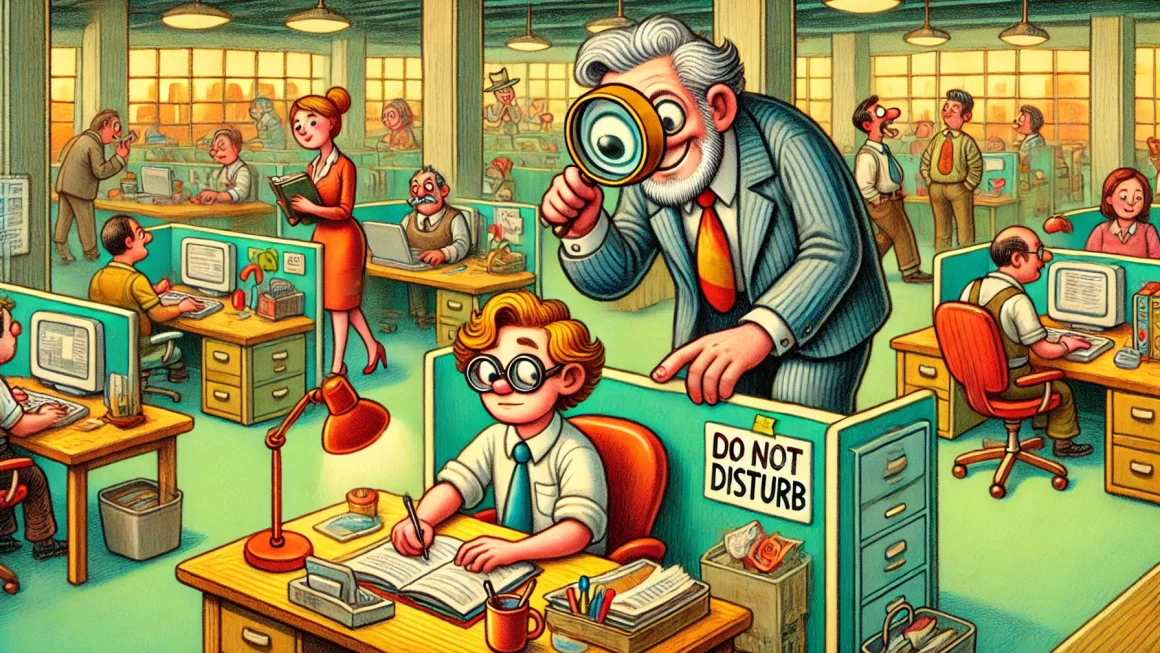Have you ever felt like someone was watching you so closely at work that they might as well set up a camping tent next to your desk? Well, welcome to the world of micromanagement! Micromanagement is like that overbearing relative who insists on managing not just the big events but every single minute detail of your life. But instead of family gatherings, it’s your day-to-day tasks at work. So let’s dive into the psychological impacts of micromanagement and, more importantly, explore some life-saving coping mechanisms!
The Downside of a Magnifying Glass Approach
Micromanagement isn’t just annoying; it’s an art form of how not to manage people. Imagine trying to type an email while someone watches each keystroke, ready to correct your use of ‘effect’ versus ‘affect.’ This constant oversight can lead to a significant dip in employee morale. People feel less valued, more stressed, and, let’s be honest, a tad bit paranoid.
Psychological Toll:
- Stress and Anxiety: Being under a microscope can crank up the stress levels. It’s like being in a never-ending job interview.
- Low Self-Esteem: Constant oversight can make you doubt your abilities. Remember when you first learned to tie your shoes? Imagine if someone corrected every loop and tug!
Coping Mechanisms: Your Psychological Armor
Alright, now that we’ve painted a picture of this micromanagement nightmare, let’s talk survival strategies!
Set Clear Boundaries:
Yes, it’s tricky, but necessary. Politely express your need for autonomy in your tasks. It’s like setting a ‘Do Not Disturb’ sign but for your workspace.
Feedback is Your Friend:
Engage in a constructive conversation about how you can both work better together. Think of it as helping your manager help you.
Stay Ahead of the Game:
Keep your manager updated before they feel the need to hover. It’s like sending a preemptive ‘I’m safe’ text to your parents when you’re out late.
Build Your Skillset:
The more competent you are, the less they’ll feel the need to oversee. Show off your skills; let your work do the talking!
Connecting the Dots with Work-Life Balance
In a Work-Life Balance: Strategies for Effective Management, we discussed the importance of setting personal boundaries and finding time for oneself amidst the chaos of work demands. Micromanagement can blur these lines even further. Maintaining a healthy work-life balance is crucial, not just for your personal life but as a strategy to cope with micromanagement. When you’re balanced, you’re better equipped to handle stress and more capable of setting boundaries that protect your mental health.
Wrapping It Up: Laugh in the Face of Micromanagement!
Let’s face it, micromanagement can make you feel like you’re part of a bizarre reality show that nobody signed up for. Use humor to your advantage; sometimes, laughing off the absurdity can be incredibly disarming and humanizing.
Micromanagement isn’t just a nuisance; it’s a test of your psychological resilience. With the right coping mechanisms, you can not only survive but thrive under the most watchful eyes. Remember, you’re more capable than you think! Next time you feel micromanaged, take a deep breath, channel your inner zen, and maybe craft a humorous tweet about it (just don’t let your boss see).




